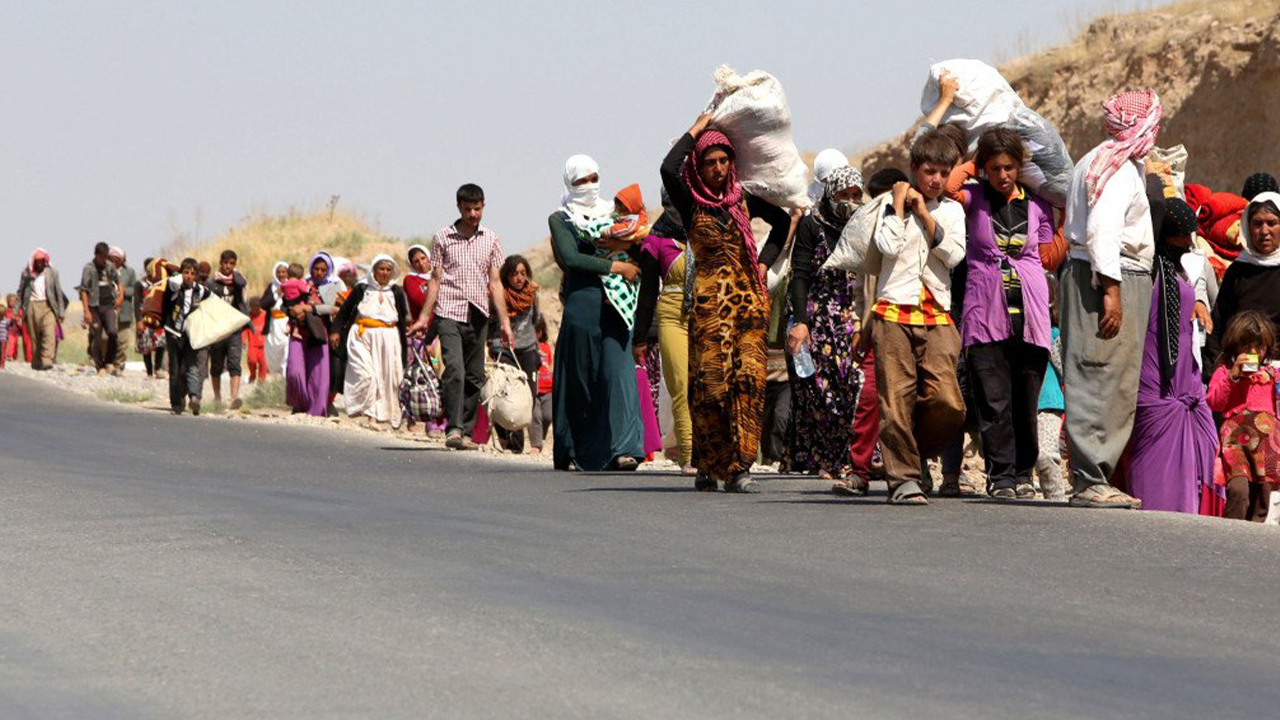Luxembourg Parliament recognises Yazidi genocide by ISIS
Luxembourg Parliament recognises Yazidi genocide by ISIS
- Date: November 13, 2022
- Categories:International,Rights

- Date: November 13, 2022
- Categories:International,Rights
Luxembourg Parliament recognises Yazidi genocide by ISIS
The Luxembourg Parliament has recognised as genocide the 2014 Yazidi Massacre, among the worst committed by ISIS. International NGOs consider this recognition as an important step forward in justice for the Yazidi community.
Luxembourg’s Chamber of Deputies on Wednesday unanimously voted to recognise as genocide the crimes of ISIS against the Yazidi community in 2014.
Yazda, a multi-national NGO which supports Yazidi victims, and the Yazidi Survivors Network (YSN) stated that the Luxembourg Parliament’s recognition of the Yazidi genocide was an important step forward in justice and accountability efforts for the Yazidi community.
“The perpetrators of the Yazidi genocide have not yet been brought to international justice, however, this decision by the Luxembourg Parliament represents a positive step toward the pursuit of restorative justice for the Yazidi community,” the statement reads.
“Da’esh [ISIS] committed genocidal acts against the Yazidis, including mass and individual killings, torture, beatings, rape, sexual slavery, abuse and other inhumane and degrading treatment with the intent of decimating the Yazidi population,” it follows.
An independent UN commission of inquiry had previously recognised the massacres as genocide in 2016, as did the European Parliament in the same year.
The ISIS attacks against Yazidis started in the Sinjar region of northern Iraq on 3 August 2014, after the Iraqi forces withdrew from the region.
ISIS overran the Yazidi land, forcing young women into sexual and domestic servitude for ISIS fighters, massacring thousands of people and displacing Yazidis in the area. Yazidi men who refused to convert to Islam were executed and left in mass graves.
Around 7,000 Yazidi women and girls were enslaved. Held in sexual slavery, survivors reported being repeatedly sold, gifted, or passed around among ISIS fighters.
Between 30,000 and 50,000 Yazidis fled into the Sinjar Mountains, where they faced starvation and dehydration.
Fifty thousand Yazidis on Mount Sinjar escaped after the People’s Protection Units (YPG) and the Kurdistan Workers’ Party (PKK) broke the ISIS siege in the mountains. Most of them were rescued by Kurdish PKK and YPG fighters, along with multinational rescue operations and humanitarian aid dropped to the mountains by helicopters.
ISIS was removed from the area on 13 November 2015. Thousands of Yazidis remain missing to date.
Many Yazidi women and children are believed to reside in Al-Hawl camp in North East Syria, among families of ISIS members, afraid to reveal their true identities due to death threats from ISIS militants.
ISIS detainees have been known to run sleeper cells in the camp, and the jihadist group continues its attempts to regroup within it.








Leave A Comment